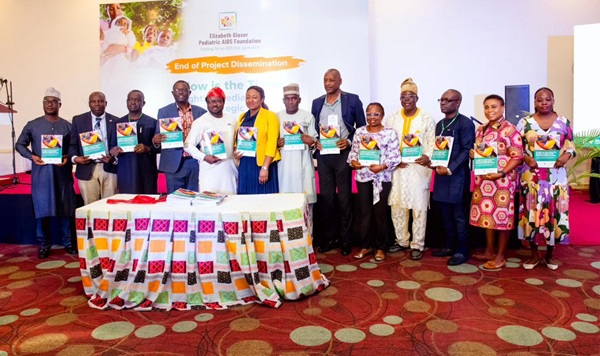
In a significant stride towards improving healthcare quality in Nigeria, the Federal Ministry of Health and Social Welfare, through the National HIV/AIDS, Viral Hepatitis and STIs Control Programme (NASCP), has introduced the early infant diagnosis (EID) optimisation toolkit.
The toolkit, launched by the coordinating Minister of Health and Social Welfare, Prof. Muhammad Ali Pate aims to enhance paediatric HIV early infant diagnosis services in Taraba and Rivers states.
Representing Pate at the launch in Abuja, the national coordinator of NASCP, Dr Adebobola Bashorun highlighted that the toolkit is the result of a collaborative effort between NASCP, the Elizabeth Glaser Pediatric AIDS Foundation (EGPAF) and the ministry. He emphasised that this initiative marks a significant step forward in advancing healthcare quality in Taraba and Rivers states.
According to Bashorun, the toolkit serves as a valuable resource for ongoing efforts to enhance early infant diagnosis services and improve the overall well-being of communities. It outlines processes, tools and recommendations for systematically implementing quality improvement, targeting EID programme indicators and extending its applicability to enhancing the overall quality of care for mothers, infants and families.
The successful application of the programme optimisation approach in the EID point of care (POC) optimisation project laid the foundation for the toolkit’s development, with active contributions from participating health facilities. Bashorun noted positive impacts on program indicators, affirming the toolkit’s effectiveness. He further emphasised that the toolkit’s lessons and tools hold potential for broader applications in elevating the overall quality of healthcare services for mothers, infants, and families.
Expressing the government’s commitment to creating a conducive environment for partners and stakeholders, Bashorun stated that the toolkit launch aligns with the national framework, focusing on scaling up plans and monitoring partners to deliver according to agreed norms and deliverables. He underscored the government’s dedication to an effective monitoring and evaluation system, highlighting its resolve to tackle identified healthcare challenges.
From a national perspective, plans for broader implementation across states were outlined, involving state government representatives and programme coordinators. Bashorun emphasised that the toolkit, intended for widespread adoption, will guide the dissemination and implementation process, ensuring positive outcomes.
Addressing the current challenges in pediatric HIV coverage in the country, Bashorun highlighted ongoing efforts to improve early infant diagnosis and reduce transmission rates. He emphasised the national strategy and commitment to addressing specific challenges, providing insight into the nation’s proactive approach to improving healthcare outcomes.
EGPAF’s country director, Dr. Avese Torbunde expressed gratitude for the collaboration with various partners and underscored the importance of strategic partnerships in achieving successful results. Torbunde urged the media, individual partners, and the government to ensure the continued impact and benefits of the toolkit beyond the project’s completion.
Acknowledging the support of sponsors, particularly the US CDC and Johnson & Johnson, Torbunde recognised progress in Nigeria towards epidemic control but emphasised the need for targeted funding and active engagement to achieve control. She urged stakeholders to sustain their efforts and collaborate closely to address the challenges in the country’s fight against pediatric HIV.
Director-general of Taraba State AIDS Control Agency (TSACA), Dr. Garba Danjuma explained that the innovative toolkit aims to bolster the state’s pediatric HIV response. Danjuma highlighted critical support received from the EGPAF Project, focusing on improving healthcare workers’ capacity and establishing youth-friendly centres.
Taraba, with the fourth-highest HIV prevalence in Nigeria, has made significant strides over the years. However, the pediatric HIV response demanded specific attention, leading to the development of the toolkit to address risks, optimise resources and ensure judicious allocation to those in need. The state team, in collaboration with partners, is actively working towards sustaining the response even as external partners exit.
Taraba State aims to further refine its approach to pediatric HIV, ensuring a targeted and efficient response that optimises resources for the benefit of those most in need. The state’s dedication to sustainability showcases a proactive approach, laying the groundwork for continued success in the fight against HIV in Nigeria.


